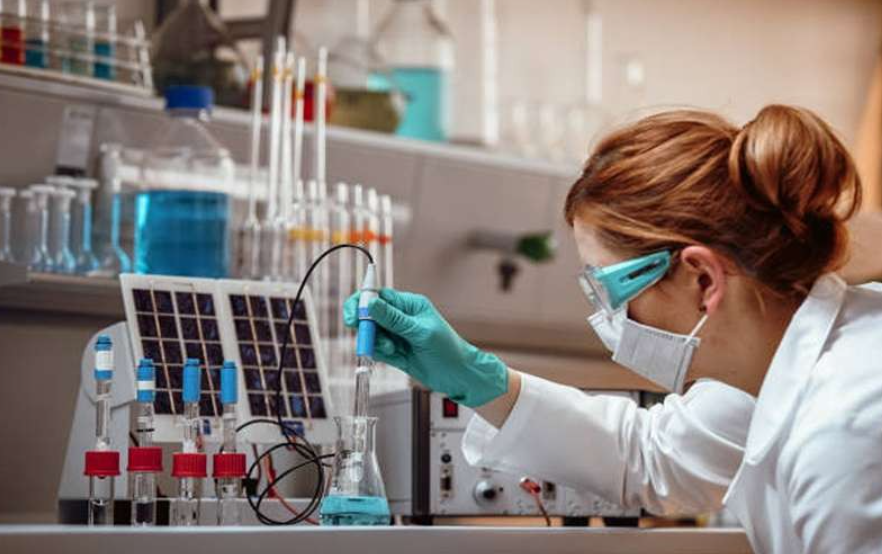
Lab Equipment Dealers Guide to Reliable and Affordable Scientific Supplies
Lab equipment dealers play a crucial role in supplying laboratories with the tools and instruments needed for research, analysis, and experimentation. They offer a range of products including new, used, and refurbished equipment, catering to institutions like universities, hospitals, and scientific research centers. The most effective dealers provide quality products, reliable service, and access to a wide inventory, ensuring labs can operate efficiently and within budget.
These dealers often specialize in various categories, from general lab consumables to specialized instruments like HPLC, GC, centrifuges, and spectroscopy devices. Many also offer procurement support, maintenance services, and vetted refurbished options to meet diverse client needs. Their expertise helps labs source equipment that meets specific technical requirements and compliance standards.
Choosing the right lab equipment dealer involves considering factors such as equipment quality, service reliability, and product range. Trusted dealers with longstanding reputations make the purchasing process smoother and contribute to the success of scientific projects by providing dependable technology and support.
Lab Equipment Dealers Overview
Lab equipment dealers act as intermediaries between manufacturers and end users, providing access to a wide range of scientific instruments and supplies. They offer both standard and specialized products, catering to diverse needs with varying budgets and technical requirements.
Dealers support labs by supplying equipment that enhances accuracy, efficiency, and compliance. Their offerings range from consumables to highly technical analytical devices, supporting numerous sectors.
Definition and Role
Lab equipment dealers serve as authorized distributors or resellers of laboratory instruments and supplies. They source products from multiple manufacturers to offer diverse options in one place. Their primary role is to make it easier for laboratories to find, acquire, and service essential tools.
They often provide additional services such as installation, maintenance, and technical support. Dealers ensure products meet quality standards and regulatory requirements. By bridging gaps between manufacturing and usage, they enable labs to focus on research and testing without concern for procurement complexity.
See also: Dig Trench Techniques for Efficient and Safe Excavation
Types of Laboratory Equipment Offered
Dealers supply both new and refurbished laboratory equipment, covering a broad array of product categories. Key types include:
- Analytical instruments: spectrometers, chromatographs
- Life sciences equipment: microscopes, incubators, autoclaves
- General lab tools: balances, pipettes, glassware
- Environmental control chambers: for temperature, humidity, and sterilization
- Consumables: reagents, plasticware, filters
Many dealers also provide custom solutions tailored to specialized laboratory processes. Some stocks include equipment suited to academic, industrial, or clinical applications, ensuring flexibility to meet diverse lab needs.
Industries Served
Lab equipment dealers serve multiple industries, providing tools tailored for specific regulatory and operational requirements. Common sectors include:
- Pharmaceutical and biotechnology: drug development and testing
- Environmental sciences: monitoring and analysis of air, water, and soil
- Food and beverage: quality control and safety testing
- Academic and research institutions: supporting experimental and educational needs
- Industrial manufacturing: materials testing and process control
These dealers understand industry-specific standards, helping clients comply with legal and safety protocols. Their broad reach ensures labs across sectors can access up-to-date and reliable equipment.
Choosing the Right Lab Equipment Dealer
Selecting a suitable lab equipment dealer is essential for ensuring reliable products that meet specific technical and operational needs. Factors such as product quality, compliance, and ongoing support greatly influence lab efficiency and accuracy.
Key Factors to Consider
A dealer’s product range should align with the lab’s specific requirements, covering both standard and specialized equipment. Pricing transparency is critical; buyers should evaluate cost against quality and warranty terms rather than seeking the lowest price.
Availability and lead time for delivery impact project timelines and should be confirmed before purchase. The dealer’s reputation, demonstrated through customer reviews or industry references, provides insight into reliability and service consistency.
Customization options may also be necessary, especially for advanced research or unique testing procedures. Dealers who offer technical advice assist labs in making informed decisions to meet current and future demands.
Supplier Certifications and Standards
Dealers must provide equipment that complies with international and industry-specific standards such as ISO 9001 or CE marking. These certifications ensure that products have been tested for safety, precision, and durability.
Verification of supplier certifications reduces risks related to faulty or non-compliant equipment. It is important that dealers maintain transparent documentation and audits of their manufacturing and supply processes.
Labs should prioritize dealers who work exclusively with accredited manufacturers. This commitment guarantees that the delivered equipment meets expected performance benchmarks and regulatory requirements.
After-Sales Support and Services
Reliable after-sales support includes warranty coverage, repair services, and the availability of replacement parts. Dealers should offer clear service contracts and timely technical assistance to minimize downtime.
Training on proper equipment usage and maintenance often enhances operational efficiency and extends product lifespan. Many dealers provide on-site training or digital resources tailored to specific equipment.
Regular maintenance plans and calibration services are valuable for sustaining accuracy and safety standards. Labs benefit from knowing that their dealer will assist beyond the initial purchase, supporting long-term equipment functionality.



